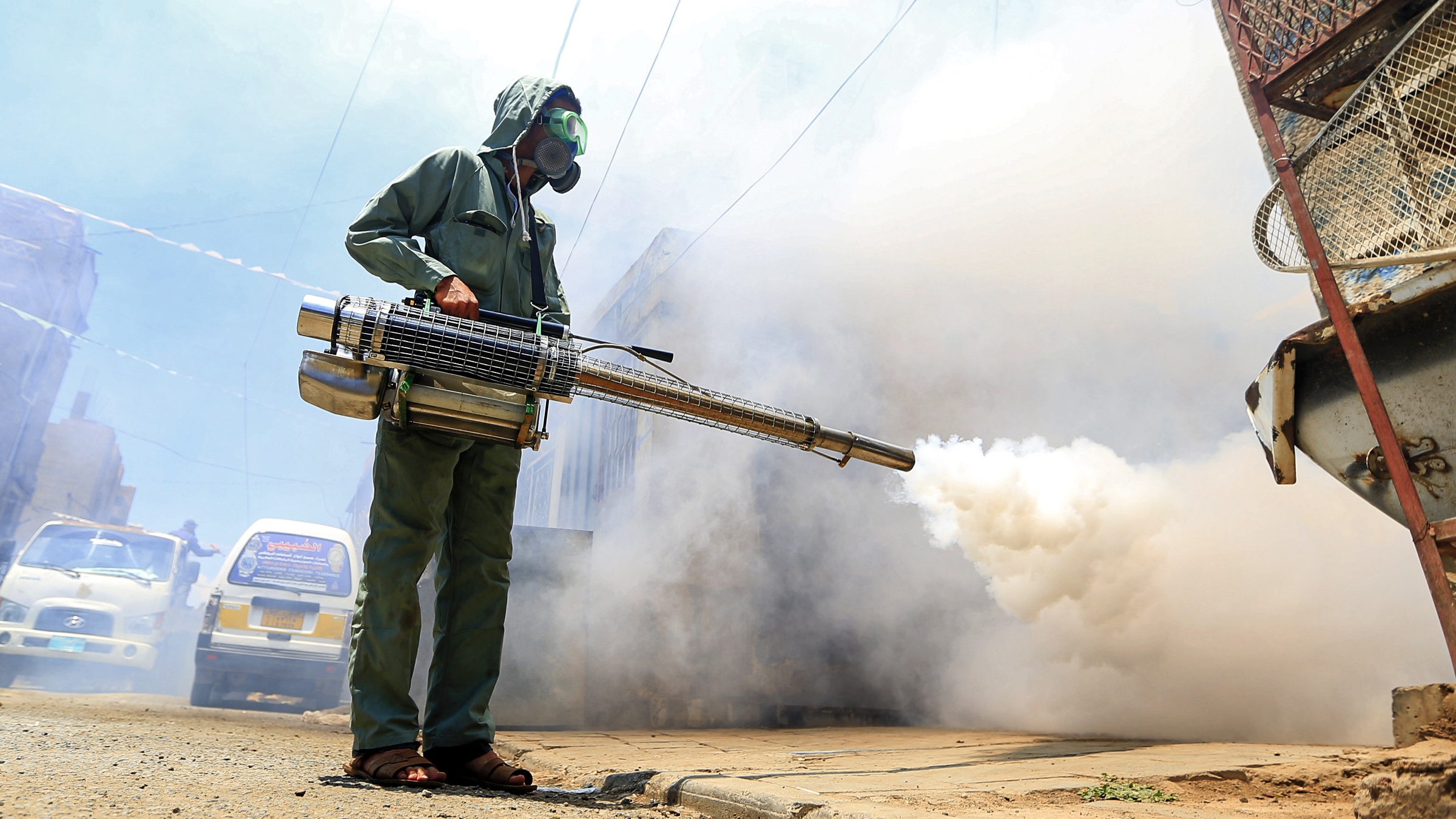Coronavirus: how war-torn Yemen managed to become Covid-free
Impoverished Middle East country appears to have wiped out coronavirus despite suffering effects of other endemic diseases

A free daily email with the biggest news stories of the day – and the best features from TheWeek.com
You are now subscribed
Your newsletter sign-up was successful
Yemen is used to being singled out, but rarely for the right reasons.
One of the world’s poorest and least stable countries, Yemen seems an unlikely place for a coronavirus success story - yet official figures back that narrative.
“In one of the most baffling turn of events in a pandemic that has constantly turned up surprises,” says The Times, “the disease has apparently disappeared from Yemen as fast as it came.”
The Week
Escape your echo chamber. Get the facts behind the news, plus analysis from multiple perspectives.

Sign up for The Week's Free Newsletters
From our morning news briefing to a weekly Good News Newsletter, get the best of The Week delivered directly to your inbox.
From our morning news briefing to a weekly Good News Newsletter, get the best of The Week delivered directly to your inbox.
Six months ago, the international community feared the worst for the Middle East nation. “Coronavirus could spread faster, wider and with deadlier consequences in Yemen,” the BBC reported in June.
“Almost three years before the advent of Covid-19, the UN declared Yemen the most needy place on Earth,” the broadcaster added - and that was before a civil war dislodged the country’s president and unleashed a wave of bloodshed as rebel factions battled government loyalists.
Aid workers believed that Covid-19 would tear through a country in which millions of people had no access to toilets or clean water, let alone healthcare - and in which cholera, malaria and dengue fever already ran rampant. Some were “forecasting a 90% infection rate”, according to The Guardian.
By late summer, however, hope was beginning to emerge. “There’s no corona in Yemen,” a resident in the capital Sana’a told Alex Crawford of Sky News in September.
A free daily email with the biggest news stories of the day – and the best features from TheWeek.com
Most Yemenis seemed to agree, and in the “bustling” old city “literally no one” was wearing a face mask. Even so, Crawford concluded, “it is difficult to believe that the country - which is suffering the world’s largest humanitarian disaster - has managed to bring it under control”.
Now, though, international observers seem more hopeful. “So far the war-torn country appears to have emerged relatively unscathed by the pandemic, reporting just 2,124 cases and 611 deaths” as of last week, says The Guardian.
While testing and data collection are “almost nonexistent”, the paper adds, doctors and health officials say “the virus is not a pressing concern”. Other measures suggest the true death toll is higher, but not by an order of magnitude.
Research conducted by the London School of Hygiene & Tropical Medicine put the number of excess deaths at 2,100 by the end of September. Most of these fatalities are thought to have occurred early in the pandemic.
Why the outbreak has subsided remains unclear. The World Health Organization (WHO) “pours cold water on claims that so many people have already caught the disease that Yemen has become the first sizeable nation to acquire herd immunity”, says The Times.
Other theories seem no more credible, with the decline in Covid cases attributed to everything from recreational drug use to age demographics. “There’s a firm belief here that quat - which gives the user an amphetamine ‘high’ - can help ward off the crippling disease,” says Sky News. A doctor quoted in The Guardian “says ‘high morale’ and a population that skews young have kept Yemenis safe”.
Youth and the absence of obesity almost certainly helped, but “some doctors here insist that the herd immunity theory is feasible”, The Times reports.
The WHO is planning to take blood from 2,000 people to check for antibodies, but the UN health agency’s local head is convinced that a second wave is on the way. “Herd immunity is something that’s achieved from vaccination,” says Altaf Musani. “The challenge is still to break transmission.”
Holden Frith is The Week’s digital director. He also makes regular appearances on “The Week Unwrapped”, speaking about subjects as diverse as vaccine development and bionic bomb-sniffing locusts. He joined The Week in 2013, spending five years editing the magazine’s website. Before that, he was deputy digital editor at The Sunday Times. He has also been TheTimes.co.uk’s technology editor and the launch editor of Wired magazine’s UK website. Holden has worked in journalism for nearly two decades, having started his professional career while completing an English literature degree at Cambridge University. He followed that with a master’s degree in journalism from Northwestern University in Chicago. A keen photographer, he also writes travel features whenever he gets the chance.